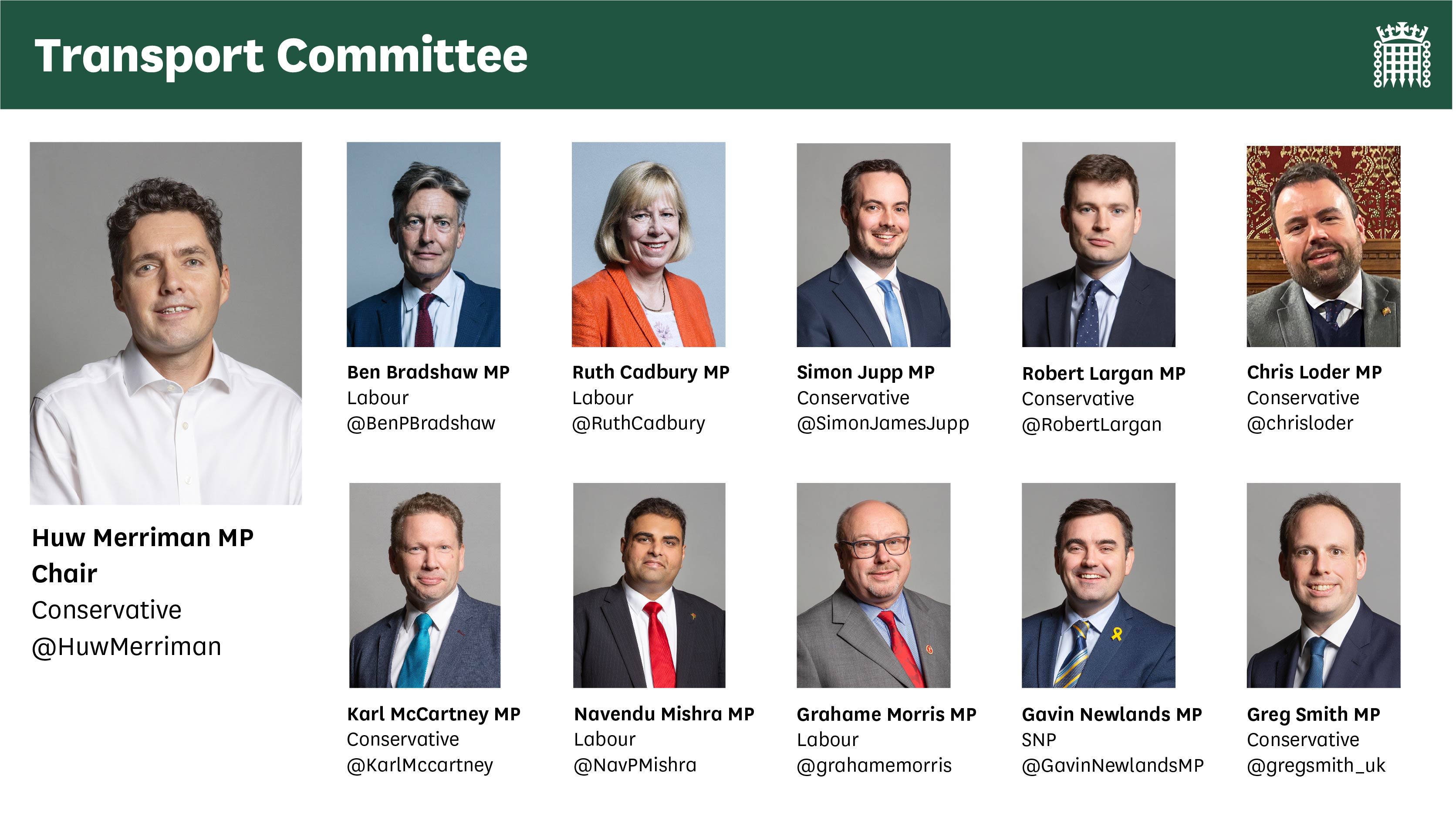UK aviation: ready for recovery?
Four key ways to help the UK aviation sector after a difficult few years
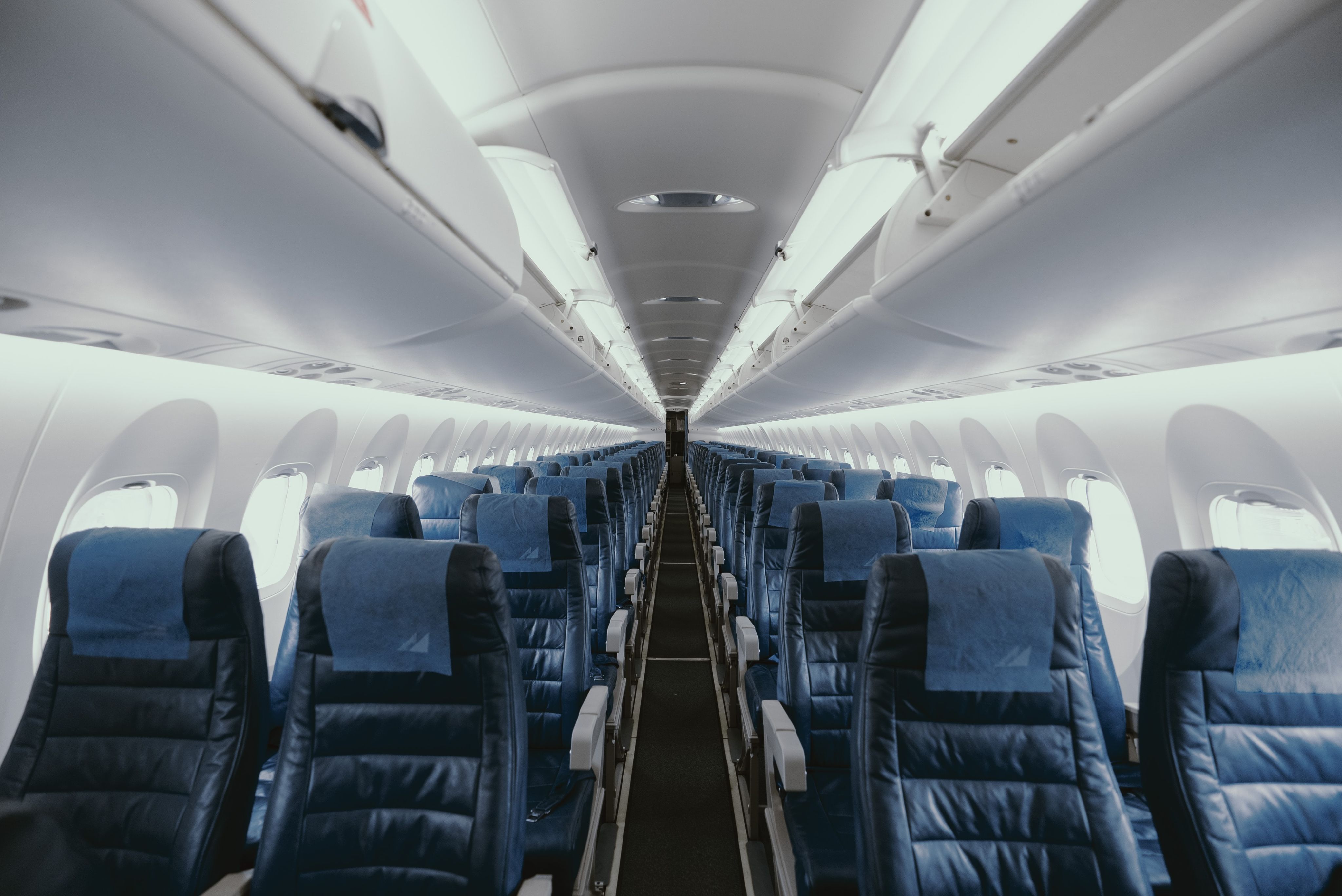
Reform for take-off
Air travel restrictions changed more than 15 times between 2020 and 2022 and caused the worst financial crisis in the aviation sector since commercial air travel began.
After the first lockdown in March 2020, the aviation industry responded to the Government's restrictions by organising repatriation flights for British citizens stranded around the globe. After those initial repatriations, flight availability decreased as the Government limited the circumstances in which people could travel internationally.
As the restrictions changed in response to the pandemic, the industry reacted by keeping certain routes open for essential travel and instituting measures to protect travellers.
At the time of writing (April 2022), international travel requirements have been removed, but they could be re-introduced at any time. The disruption at British airports in April showed that some barriers remain to the aviation sector’s recovery after coronavirus.
The coronavirus pandemic led to an unprecedented decline in the number of flights in 2020, with a 97% reduction in flights compared to 2019.
During October-December 2021, 30.9 million passengers flew in and out of the UK on 315,202 flights. Those statistics represent a steady recovery for the sector with flight and passenger numbers at the highest levels since quarter one of 2020.
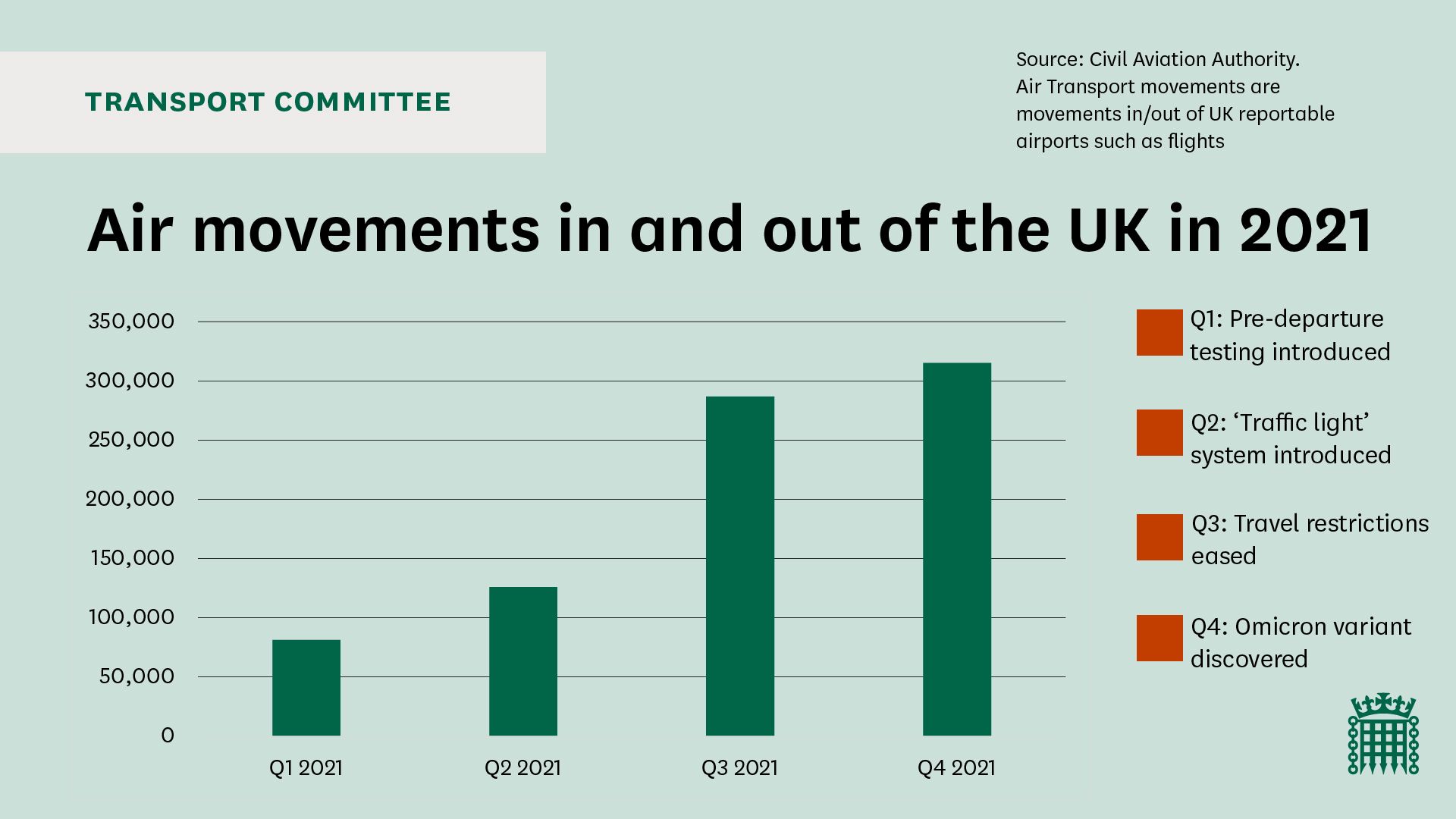
However, those statistics also show a 55% decline in passenger numbers compared with the same period in 2019, before the coronavirus pandemic.
How can the UK aviation sector recover after two years of disruption?
Key recommendations for recovery
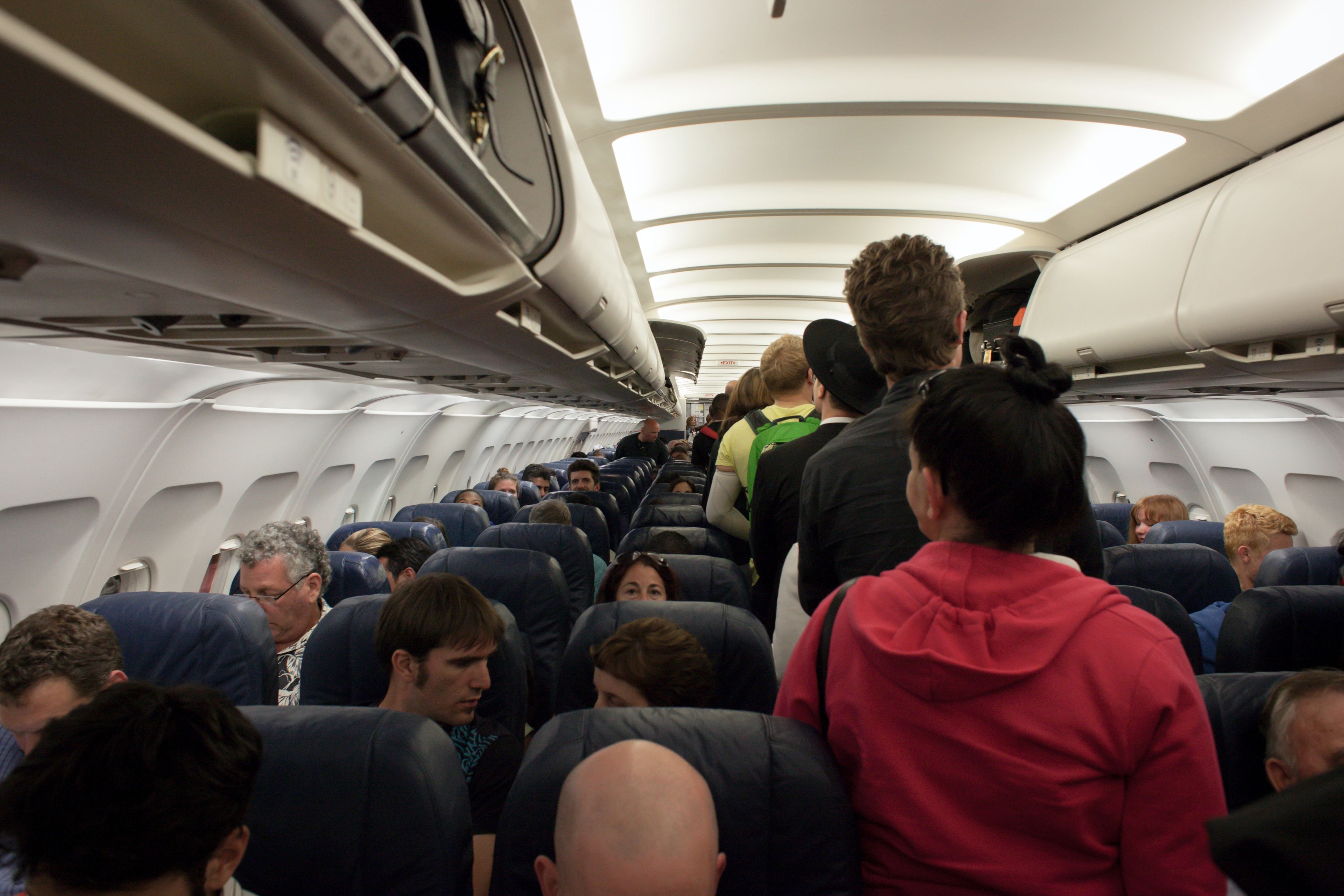
1. Pandemic resilience planning for international travel is essential
The Government must build international travel into its future pandemic resilience planning, developing a transparent and predictable system that can be used to safely facilitate international travel during potential future health crises.
The Government's strategy for the recovery of the aviation sector must include a commitment to developing such a plan.
2. An aviation recovery plan must be published
As the aviation industry's economic recovery from the coronavirus pandemic is now well under way, the Government's aviation recovery plan must be published as a priority.
That strategy should be published no later than 1 June 2022, when the summer travel season will begin in earnest.
3. Net-zero targets must not be forgotten as air travel resumes
If the Government is to achieve its targets on net-zero aviation, new sustainability policies will be required for the aviation sector, which in turn will require robust regulation. It must also introduce a market mechanism to support investment in sustainable aviation technologies.
The Government must review how the Civil Aviation Authority’s powers can be reformed to enable the regulator to enforce environmental mandates that the Government may introduce for the aviation sector.
4. The Government must set up an international travel toolkit
The Government must set up an international travel toolkit based on the following principles:
International travel restrictions must be evidenced by transparent advice and analysis that the Government makes publicly available. Such analysis must detail the rationale and evidence as to why such restrictions are deemed effective, considering both public health and economic factors.
The process must allow for formal representations to be made from affected sectors, primarily the aviation and travel industries. As in Germany, restrictions should be agreed on a cross-departmental basis with an equal voice from the Department for Transport and the Department of Health and Social Care.
Any restrictions on international travel must be proportionate and comparable to those in place across the rest of the UK economy.
Where the Government imposes future coronavirus restrictions on the international travel industry, and where such restrictions do not apply on a comparable basis to the domestic economy, the Government must compensate the industry for the economic loss suffered.
What happens now?
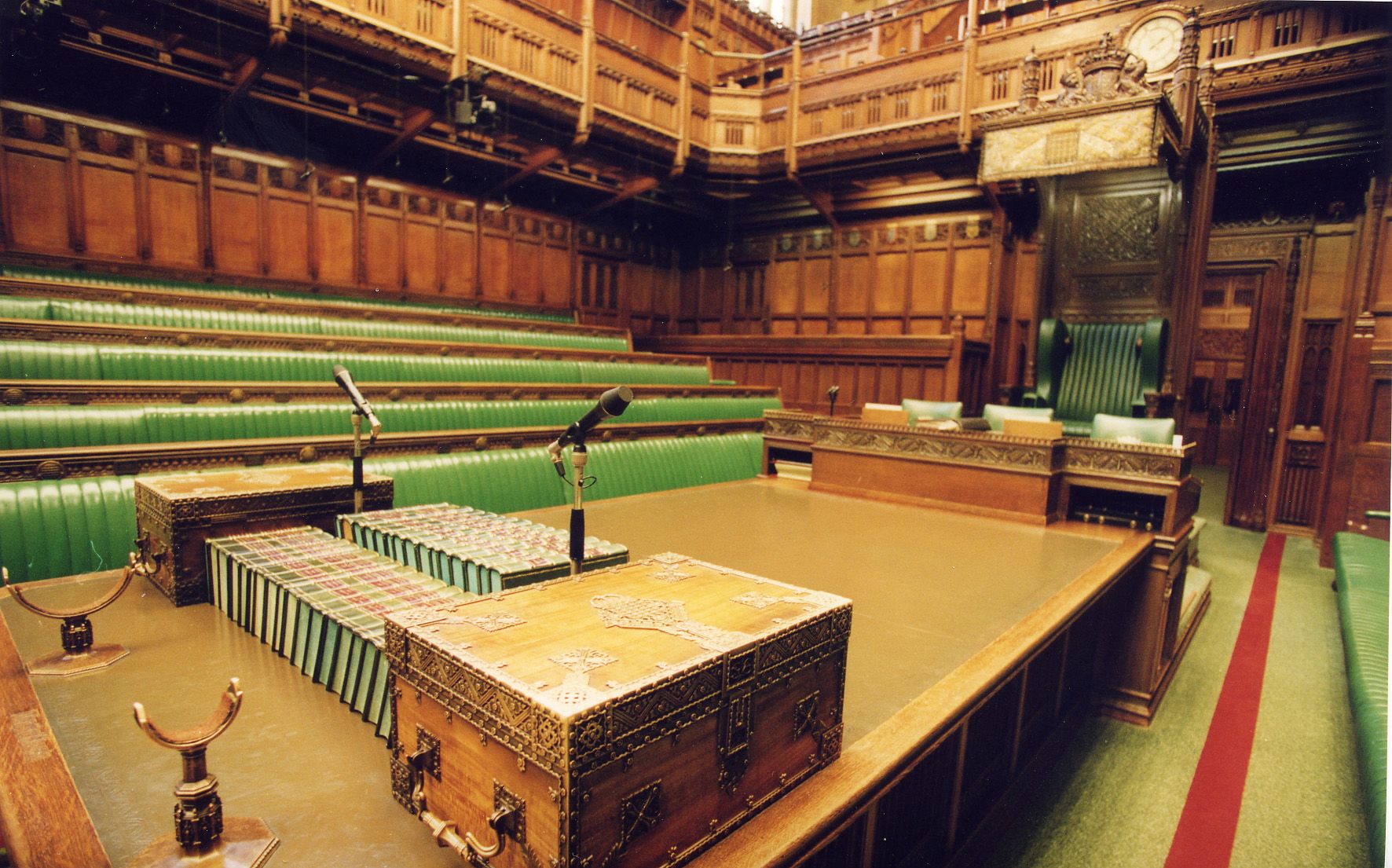
We have made these recommendations to the Government
We published a report with our findings on 25 April 2022 and the Government has two months to respond.
Detailed information from our inquiry can be found on our website.
If you’re interested in our work, you can find out more on the House of Commons Transport Committee website. You can also follow our work on Twitter.
The Transport Committee is nominated by the House of Commons to scrutinise the work of the Department for Transport.

Cover image credit: JC Gellidon via Unsplash

